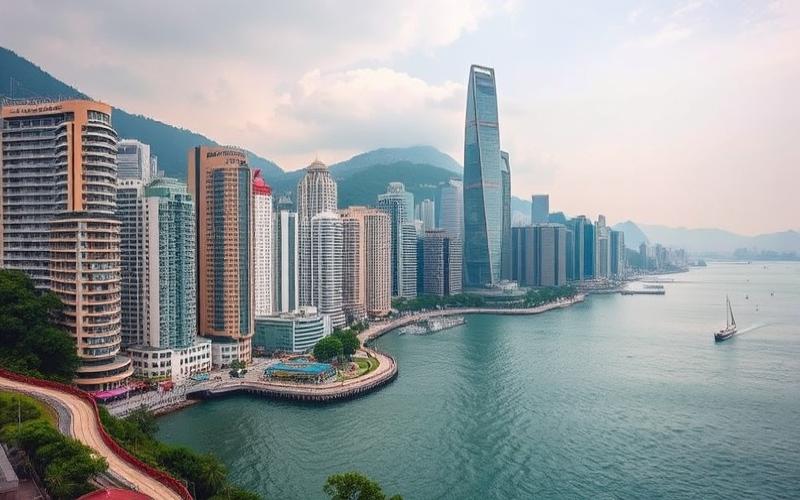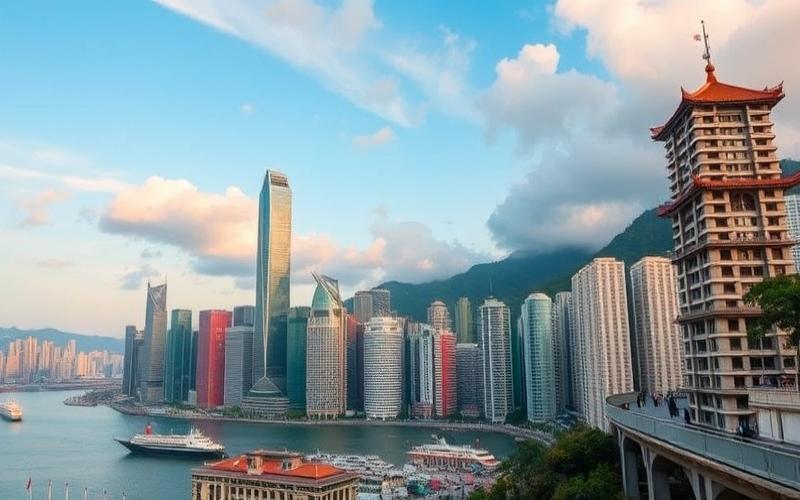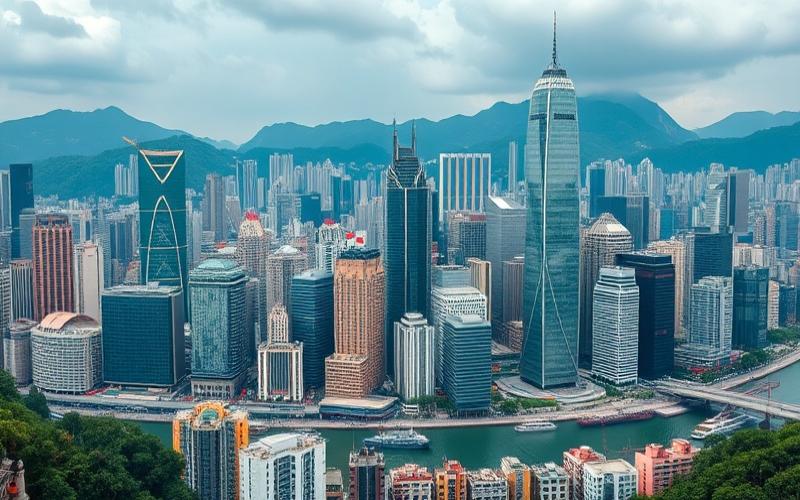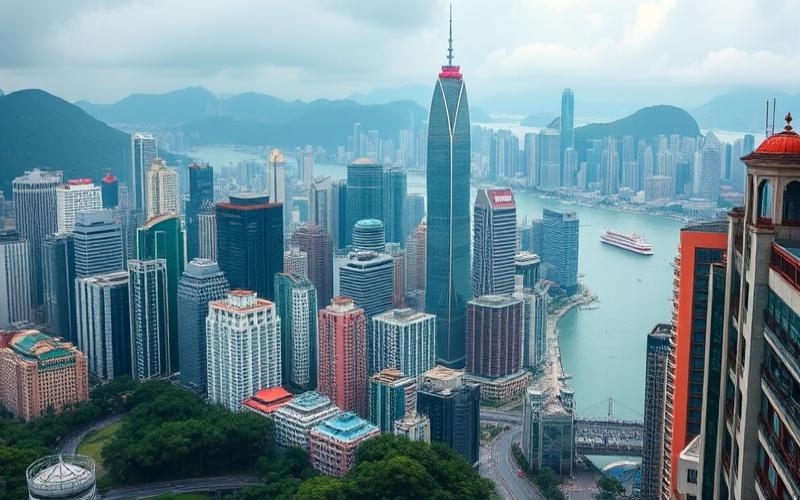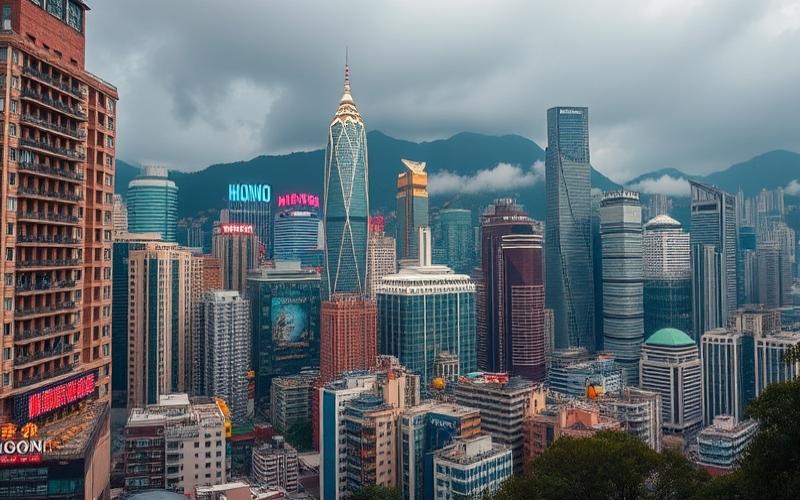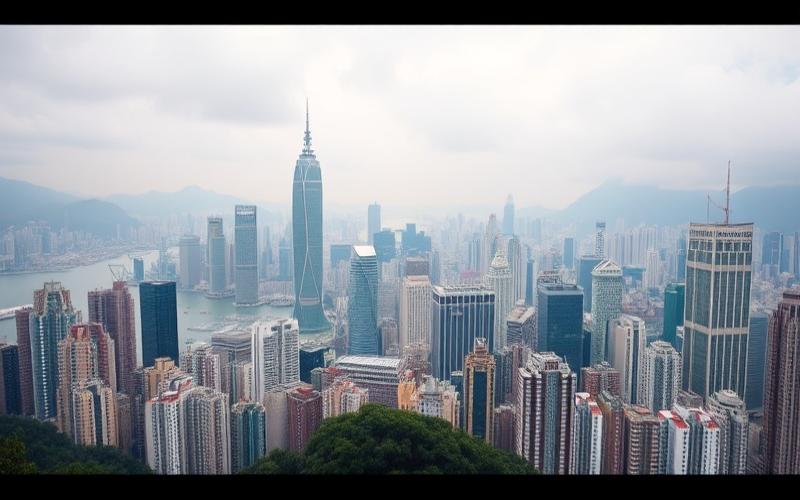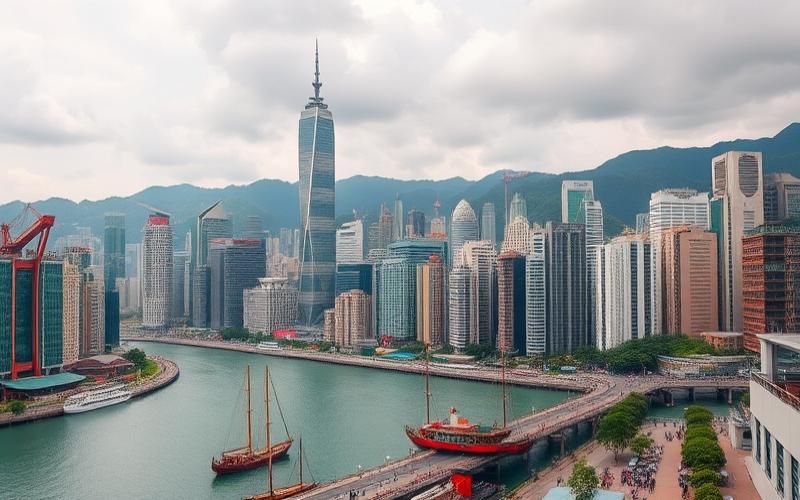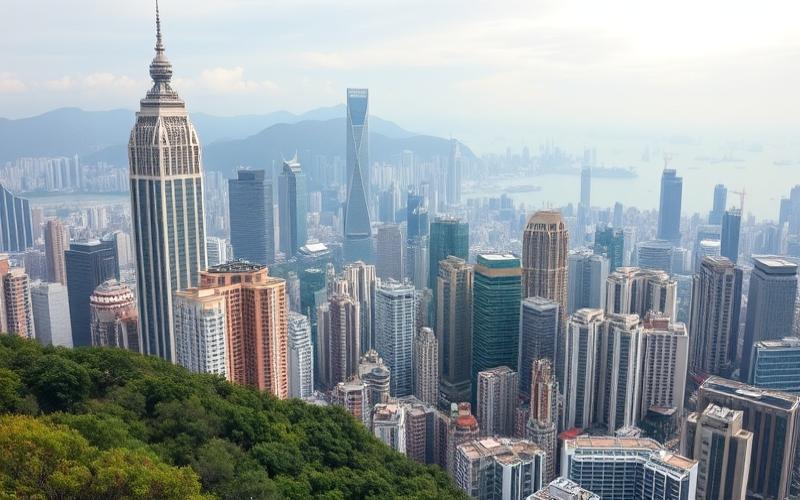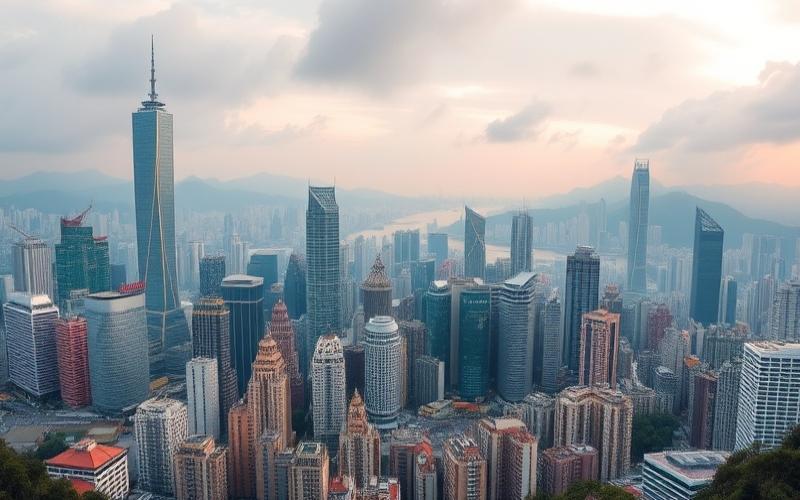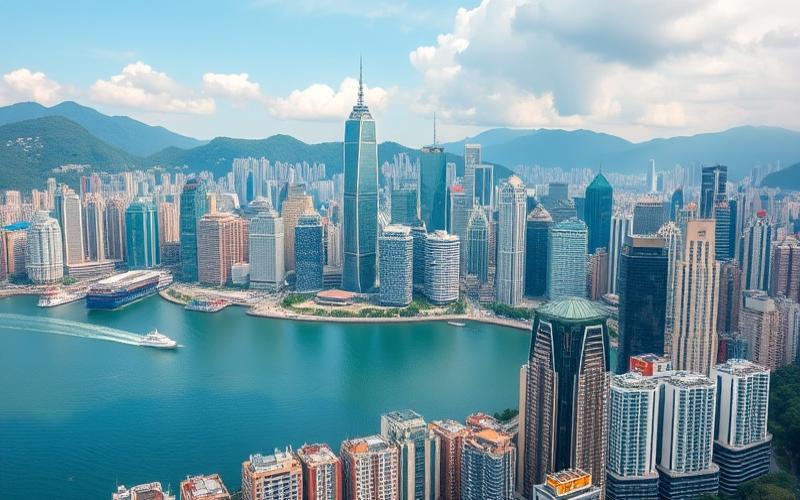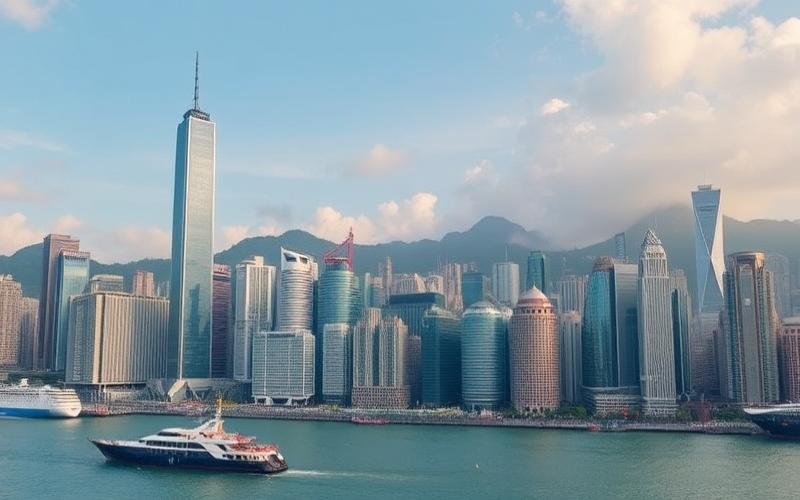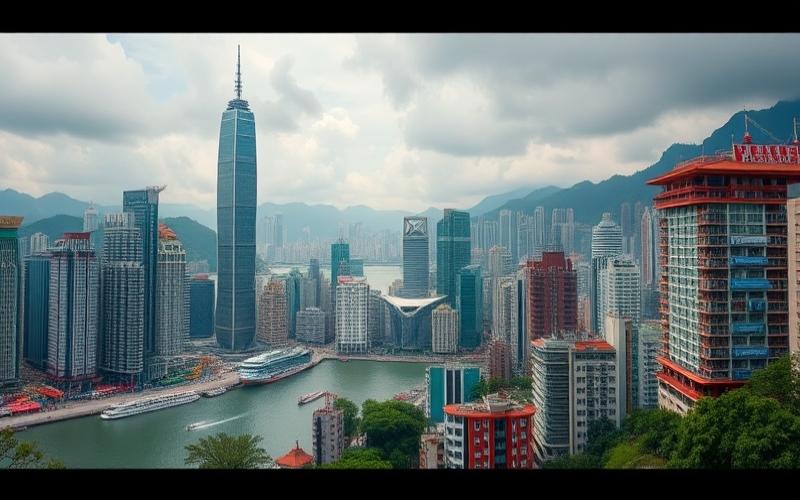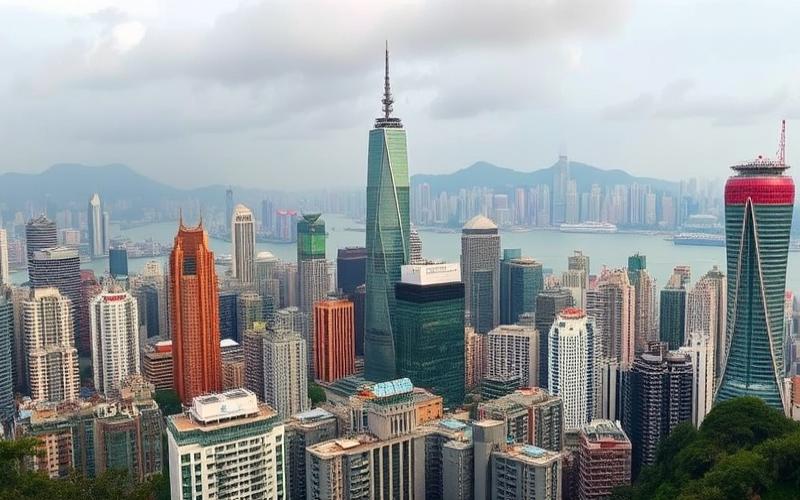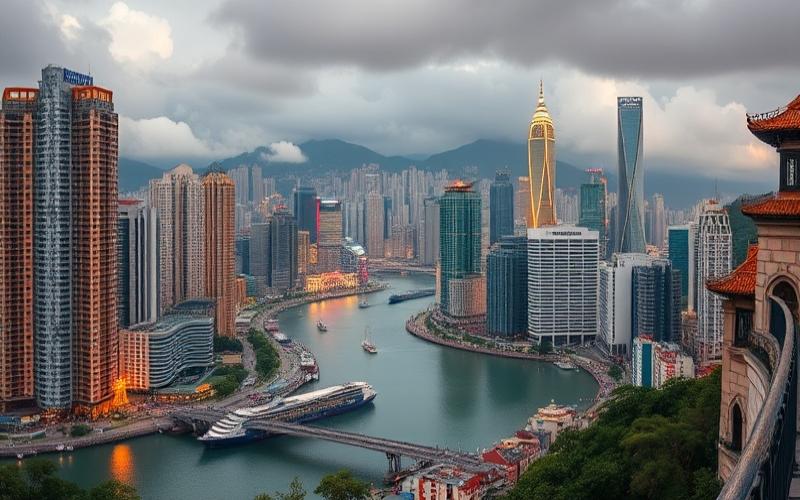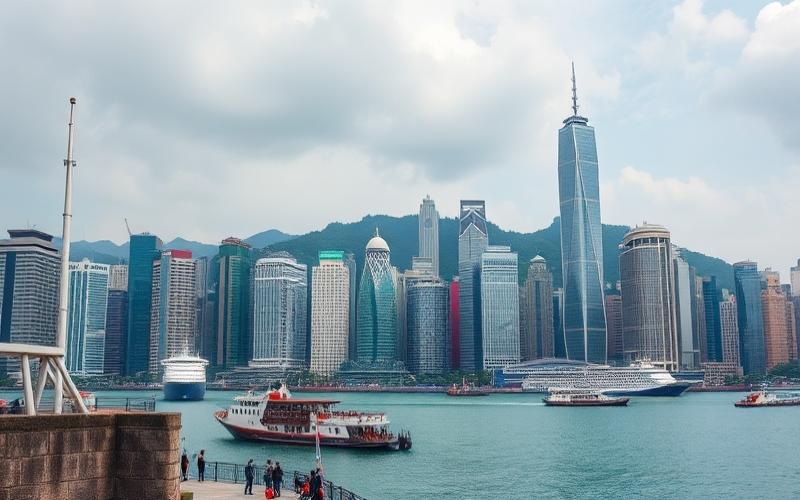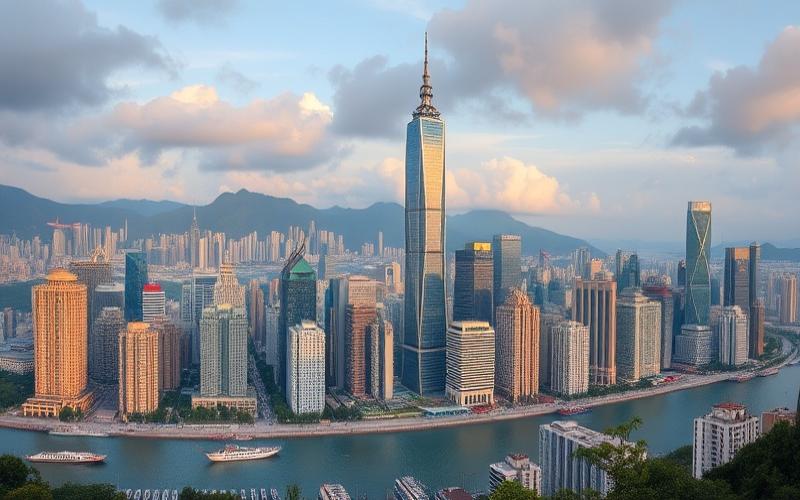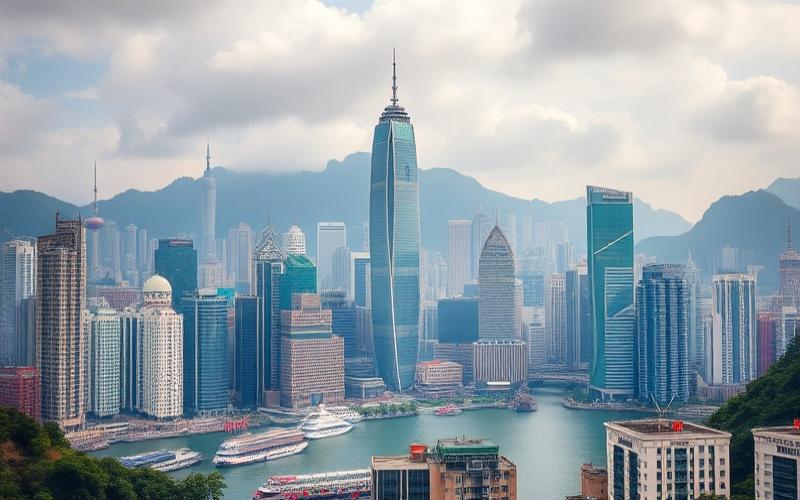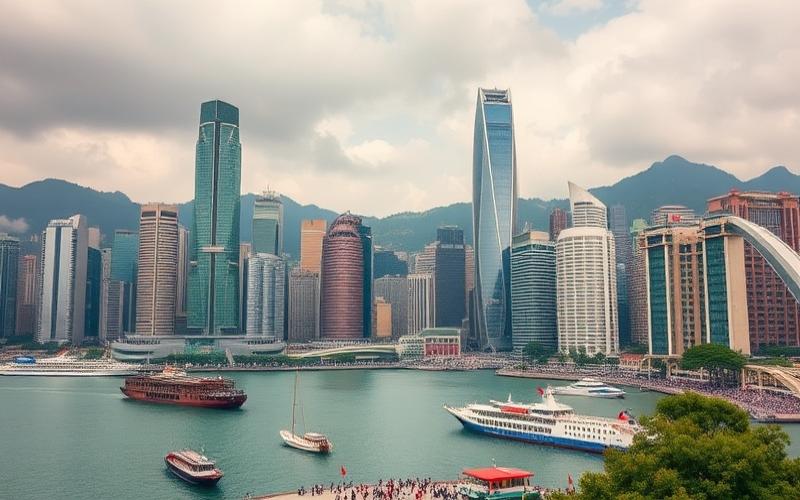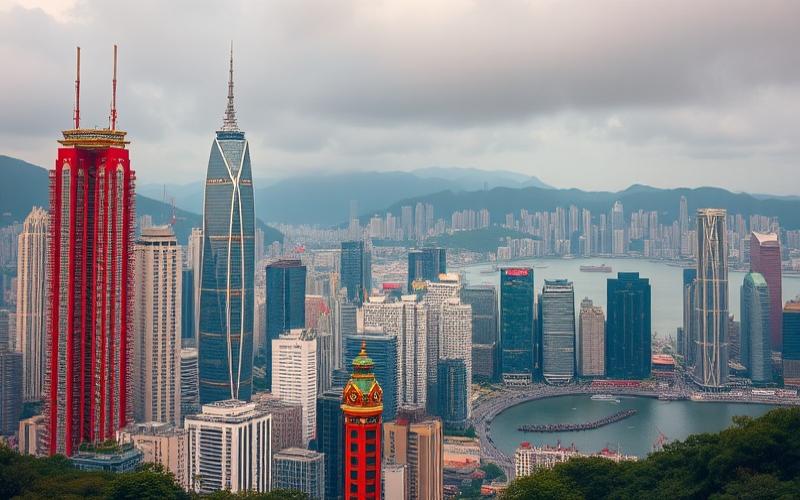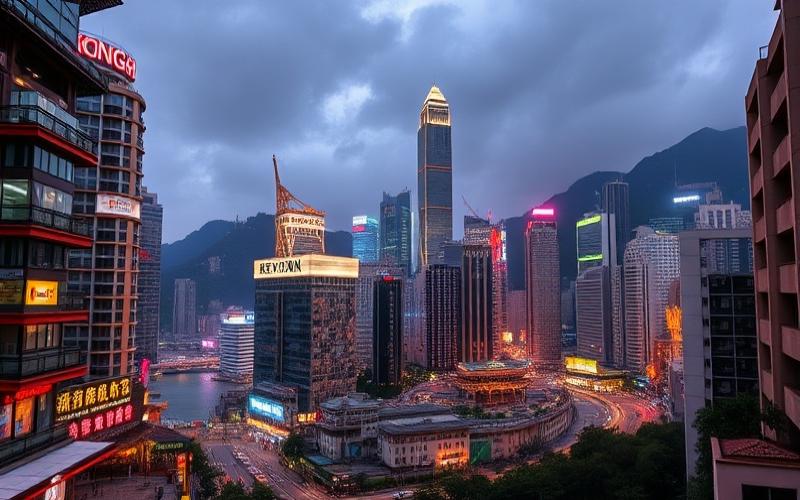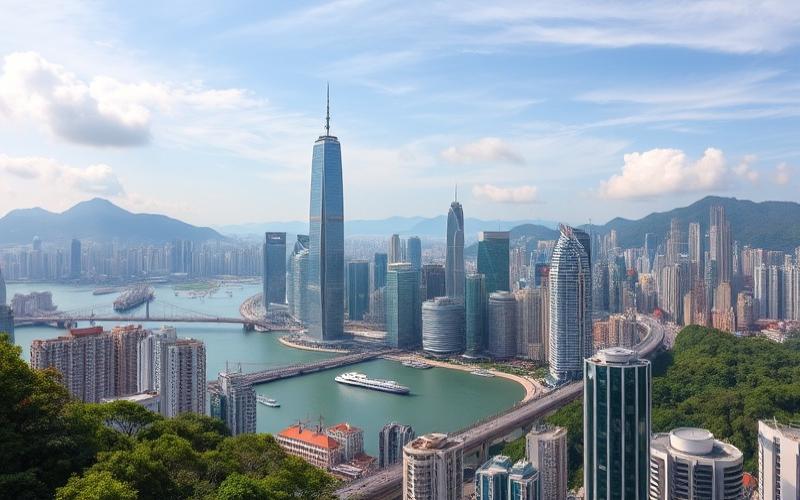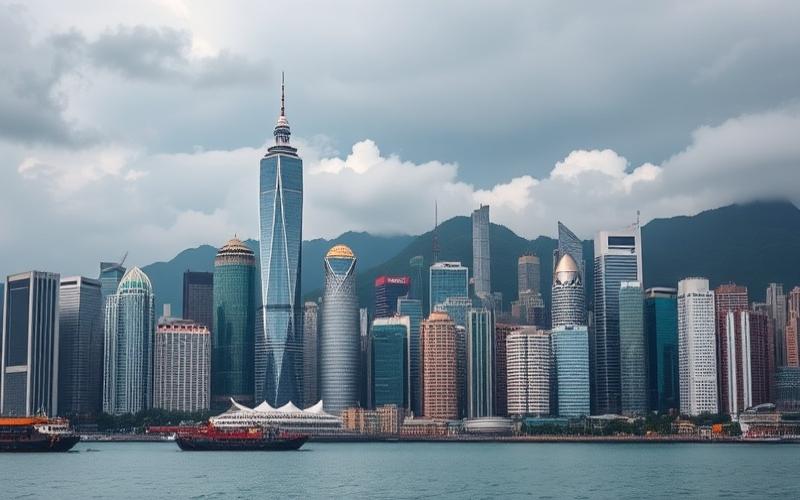
 Published on and written by Cyril Jarnias
Published on and written by Cyril Jarnias
Hong Kong: A Dynamic Metropolis for Real Estate Investment
Hong Kong, this dynamic metropolis, is one of the most sought-after destinations for those looking to invest in real estate. Known for its robust stock market and favorable tax environment, this city offers fertile ground for investors seeking profitability and diversification.
Whether you’re drawn to the traditional charm of historic neighborhoods or the modern infrastructure of new urban areas, each district presents unique opportunities to exploit.
The Best Neighborhoods in Hong Kong for Investment
In this article, we guide you through the best neighborhoods in Hong Kong where your investment could flourish, taking into account market trends, growth prospects, and resident preferences.
Hong Kong’s Real Estate Gems: Where to Invest First
Hong Kong Neighborhoods with the Most Attractive Real Estate Investment Opportunities
| Neighborhood | Key Characteristics | Price/m² (HKD) | Occupancy Rate | Recent Projects / Trends |
|---|---|---|---|---|
| Central | Financial heart, proximity to institutions and transport, luxury apartments, strong expatriate demand. | > 40,000 | High (high-end) | Luxury residences, enhanced security |
| Mid-Levels | Close to downtown, greenery and relative quiet, high-end housing. | > 35,000 | Strong | New family residences |
| Sheung Wan | Trendy neighborhood: art galleries, cafes and boutiques; young professional population. | ~30,000 | Good | Upscaling of real estate properties |
| Wan Chai | Lively nightlife, modern bars/restaurants; recent housing. | ~28,000 | Stable | Urban renewal |
| Happy Valley/Jardine’s Lookout | Family/expatriate atmosphere; green spaces around the racecourse; nearby international schools. | ~32,000 | Very high | – |
| Kai Tak / Kowloon Bay (emerging neighborhoods) | Redeveloped area on the former airport: spectacular sea views but demand still low; new high-end projects. | >322,920 (new development The Knightsbridge) | Currently low | Multiple new residential developments |
Unique Characteristics by Neighborhood
- Central
- Strategic central location on the main island.
- Premium infrastructure: direct MTR access, prestigious shopping centers.
- Stable market despite very high prices.
- Moderate rental yield (~2–3%), strong capital growth potential.
- Mid-Levels
- Blend of urban proximity and green residential setting.
- Ideal for families/professionals seeking space + tranquility.
- Sheung Wan
- Cultural/cafe/modern dining dynamism: attracts young creative professionals.
- Wan Chai
- Strong appeal for investors targeting short-term rentals or single expatriates.
- Happy Valley & Jardine’s Lookout
- Family environment highly sought after by European expatriates due to the presence of French/international schools.
- Varied sports activities around the racecourse.
Focus on Emerging or Underestimated Neighborhoods
Kai Tak / Kowloon Bay
Opportunities linked to the vast airport site redevelopment project:
- Numerous new developments with stunning views of Victoria Harbour
- Abundant supply facing still hesitant demand (high prices but interesting long-term prospects if economic recovery)
Key Statistic: New apartment at The Knightsbridge: approximately 322,920 HKD/m², or nearly 5 million USD for a contemporary family property (~128 m²).
Impact of Local Government Policies
Hong Kong authorities have recently:
- Eased some property transaction taxes to support the residential market amid economic slowdown
- Promoted development in areas like Kai Tak through major urban projects
This could encourage a gradual market recovery in these sectors while maintaining strong selectivity in traditional central neighborhoods where regulation aims more for stability than speculative surge.
Summary List of Factors Favoring Good Return on Investment:
- Central location or connected to major transport routes
- Presence of school/international infrastructure
- Ongoing major urban projects
- Recent incentive tax policy for foreign buyers/investors
Good to Know:
Hong Kong offers several attractive neighborhoods for real estate investment, notably Central which, thanks to its premier infrastructure and reputation as a dynamic economic center, has stabilized property prices around 250,000 HKD per m². Conversely, Kennedy Town offers impressive growth potential with its recent residential developments and an occupancy rate nearing 92%, despite a more accessible average price of 160,000 HKD per m², ideal for new investors. In the emerging district of Kowloon East, ongoing transport projects and green initiatives attract many, benefiting from an annual property value increase of nearly 8%. The government’s urban densification policies, by favoring small units, stimulate investment in undervalued neighborhoods such as Sham Shui Po, where new constructions promise a quick return on investment. Furthermore, the recent removal of additional taxes for foreign buyers is energizing the market, particularly in long-underestimated sectors, while attracting foreign funds and strengthening the region’s international competitiveness.
Growth Prospects: The Promising Future of the Hong Kong Market
Hong Kong shows robust real estate growth forecasts, driven by a combination of favorable economic, political, and demographic factors. Recent analyses anticipate a marked market rebound starting in 2025, with an expected increase in new home sales of approximately 20% by end of 2025 and an average price increase around 3% in the second half of 2025.
| Key Forecast | Expected Figure | Timeline |
| Home Sales Growth | +20% | End of 2025 |
| Real Estate Price Increase | +3% (2nd half) | End of 2025 |
| Overall Annual Growth* | ~5.55% | Until 2030 |
Main Factors Driving Growth:
- Declining interest rates, facilitating access to mortgage credit for households and investors.
- Advantageous tax policy, notably relatively low corporate tax and an attractive regulatory environment for foreign capital.
- Limited land supply, mechanically supporting the value of existing real estate assets.
- Continuous urban modernization: major infrastructure projects (new neighborhoods connected to the express rail line or modernized logistics hubs) that enhance the attractiveness of districts like Kowloon East or Kai Tak.
Regional Comparison:
| Market | Price Trend | Vacancy Rate | Foreign Taxation |
| Hong Kong | +3% expected | Low | Advantageous |
| Singapore | Stable/+2% | Very low | Restrictive / high taxes |
| Shanghai | Slight increase | Moderate | Strict control |
Hong Kong stands out for its high liquidity, openness to international investors, and ability to attract expatriates as well as Asian headquarters. Despite some exogenous risks (geopolitical tensions, global volatility), the territory maintains a privileged position compared to its regional competitors.
Political and Social Stability:
- The stability regained over several years reassures sector players; the legal framework remains protective of private property.
- A calmed social climate encourages the return of institutional investors after the uncertain post-pandemic period.
Major Urban/Infrastructure Developments:
- Iconic projects such as the expansion of the central financial district or the accelerated development of the technology hub in the New Territories are energizing certain micro-markets.
- Logistics expansion driven by the rapid rise of e-commerce (+7 to +8 %/year until 2029), generating growing demand for urban “dark stores” adapted to new commercial uses.
Demographic Trends:
- The working population remains young and highly skilled; Hong Kong remains attractive to Asian and Western expatriates thanks to its cosmopolitan environment.
- However, there is a risk related to the potential departure of talent to Singapore or Dubai; this factor is offset by the regular arrival of new professionals attracted by the local economic dynamism.
Sector Outlook According to Real Estate Experts:
“Thanks to the regional economic rebound, stable tax incentives, and the structural shortage in certain central areas, we anticipate a sustained bullish cycle over three years,” analyzes Wheelock Properties.
Professionals also emphasize that despite some occasional corrections linked to the international situation, the historical resilience of the Hong Kong market remains unmatched in Asia.
The Hong Kong real estate market thus asserts itself as a stronghold undergoing positive transformation. Investors benefit not only from a favorable economic context but also from a renewed urban dynamic that ensures – despite some points of caution – promising prospects for both residential and commercial sectors.
Good to Know:
Recent economic analyses indicate sustained growth in Hong Kong’s real estate market, stimulated by advantageous tax policies and attractive interest rates. Political and social stability further strengthens investor confidence, positioning Hong Kong among regional leaders compared to other Asian markets like Singapore. Infrastructure projects, such as the development of Kai Tak neighborhoods and innovations in transport, increase attractiveness for investors. Sector experts emphasize that demographic trends, notably population aging and increasing urbanization, will induce strong real estate demand, particularly for housing of varied sizes adapted to different family needs, a crucial factor for investment strategies. Recent statistics forecast real estate price increases of 3% to 5% per year, highlighting the potential for substantial gains in certain transforming neighborhoods.
Why Hong Kong Remains a Safe Bet for Investors
Hong Kong remains a preferred destination for international investors thanks to a combination of structural, regulatory, and economic factors that give it a reputation for reliability.
Main Advantages for Investors:
Economic Stability:
- GDP growth forecast between 2% and 3% in 2025, after a moderate increase of 2.5% in 2024.
- Contained inflation rate around 1.5% to 1.8%, reflecting a stable macroeconomic environment.
Political Stability:
| Factor | Description |
| Increased Political Control | Adoption of national security legislation; near-disappearance of pluralism |
| Absence of Opposition | Uniform parliamentary majority limiting risks of institutional blockage |
| Limited Protests | Low probability of major social movements in the short term |
Business-Friendly Regulatory Framework:
- Legal system based on common law offering predictability and contractual security.
- Attractive taxation (low corporate taxes).
- Complete freedom of capital movements.
Real Estate Market Dynamism:
- Constant attractiveness despite regional volatility thanks to strong local and international demand.
- Presence of global players in commercial and residential real estate.
World-Class Infrastructure:
- International airport among the most efficient in the world.
- Efficient logistics network (deep-water port, fast rail connections).
Importance of the Financial Market:
| Indicator | Global Positioning |
| Stock Exchange | Top 3 globally for IPO fundraising |
| Offshore RMB Banking Center | First rank outside mainland China |
* Hong Kong also serves as an interface between the mainland Chinese economy and the rest of the world.*
International Perception & Recent Geopolitical Context:
Despite strengthened political control since the national security law (2020), Hong Kong is still considered a major global financial center by international institutions.
However, some Western powers express reservations regarding the decline in political pluralism; this translates into measures such as the withdrawal of the special customs status previously granted by the United States or the targeted imposition of political sanctions. Nevertheless, these developments have not significantly undermined the regional or international role played by Hong Kong in the financial or commercial sector.
In Summary:
The fundamental advantages – relative economic stability, robust pro-business regulatory framework, highly developed infrastructure, and strategic position as a regional financial hub – ensure Hong Kong’s continued status as a reliable destination for international investment.
Good to Know:
Hong Kong remains a popular destination for investors thanks to its economic stability and pro-business regulatory framework. Despite recent geopolitical tensions, the city retains its status as a global financial center with a dynamic real estate market and world-class infrastructure. Hong Kong’s robust and transparent legal framework attracts international companies, offering a conducive environment for investment. The Hong Kong Stock Exchange, one of the largest in the world, provides access to substantial capital and significant liquidity. Furthermore, Hong Kong’s role as a gateway to China continues to strengthen its global appeal, facilitating cross-border trade and investment.
Tips to Maximize Your Investment in Hong Kong
Practical Tips to Maximize a Real Estate Investment in Hong Kong
- Diversification of Investments
- Do not concentrate all your capital on a single type of property (residential, commercial, offices, etc.).
- Spread your investments across different neighborhoods or segments to limit exposure to sectoral or geographical fluctuations.
- Understanding Local Market Trends
- Analyze economic cycles, monetary and fiscal policies, as well as government announcements.
- Prices are historically high but are currently in a corrective phase, offering opportunities for patient and well-informed investors.
- Take advantage of declining interest rates to access more favorable financing, while monitoring the gradual rise in prices.
- Risk Assessment
- Favor a prudent approach in the face of risks of continued price correction.
- Integrate global geopolitical and economic uncertainties into your investment scenarios.
- Be attentive to the evolution of rental demand and the solvency of potential tenants.
- Impact of Local Laws and Tax Regulations
- Consider specific taxes applied to foreign buyers and incentive measures for affordable housing construction.
- Changes in tax policy or market regulation can affect the profitability and liquidity of real estate assets.
- Stay informed about property rights, rental restrictions, and reporting obligations.
- Neighborhood Choice and Anticipation of Urban Developments
- Aim for sectors benefiting from major infrastructure projects or urban renewal (e.g., Tseung Kwan O, Kai Tak).
- Central neighborhoods like Central and Mid-Levels remain safe bets, but developing areas often offer better medium-term capital appreciation prospects.
| Neighborhood | Main Assets | Prospects |
|---|---|---|
| Central/Mid-Levels | Prestigious, proximity to finance/business | Stability |
| Tseung Kwan O/Kai Tak | Rapid development, affordable prices | Growth |
| Kowloon | Strong local demand | Mixed |
- Effective Rental Management and Yield Optimization
- Rigorously select your tenants and favor long-term leases to secure income.
- Regularly maintain your property to preserve its value and limit rental vacancy.
- Adjust the rent according to market conditions and offer additional services (furnished, Internet included) to maximize attractiveness.
- Complementary Strategies
- Use comparative analysis tools to best estimate rental value and anticipate market developments.
- Call on professional property managers to optimize profitability and administrative compliance.
- Diversify your strategies between buy-sell and rental to adapt your portfolio to market evolution.
In summary:
Maximizing a real estate investment in Hong Kong requires active monitoring of economic and regulatory trends, judicious choice of neighborhoods, rigorous rental management, and thoughtful asset diversification.
Good to Know:
To maximize your real estate investment in Hong Kong, it is essential to diversify your portfolio to reduce risks, while being attentive to local market trends. Study the laws and tax regulations in force, as these have a significant impact on returns. Choose neighborhoods with high potential for urban development, taking into account planned future infrastructure, to guarantee the appreciation of your property. Furthermore, adopting effective rental management strategies, such as using professionals for tenant selection and regular property maintenance, can optimize rental yields. Finally, constantly assessing economic and political risks can help you adjust your investment decisions in a timely manner.
Disclaimer: The information provided on this website is for informational purposes only and does not constitute financial, legal, or professional advice. We encourage you to consult qualified experts before making any investment, real estate, or expatriation decisions. Although we strive to maintain up-to-date and accurate information, we do not guarantee the completeness, accuracy, or timeliness of the proposed content. As investment and expatriation involve risks, we disclaim any liability for potential losses or damages arising from the use of this site. Your use of this site confirms your acceptance of these terms and your understanding of the associated risks.



